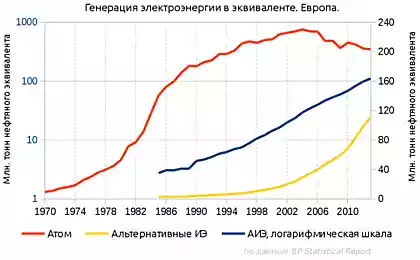165
Environmentally friendly fertilizers from renewable energy waste
Scientists from Lancaster University have begun scientific research to create environmentally friendly fertilizers from renewable energy production waste.
It is expected that the research will result in new environmentally friendly soil improvers and fertilizers for crop production, which will help reduce costs for farmers and, as a result, slow the growth of food prices.
The Lancaster University project also involves Stopford Energy and Environment Limited and Aqua Enviro Limited, the James Hutton Institute. The study builds on previous research to use a mixture of digestates obtained after anaerobic digestion and ash residue from burnt biomass as an alternative to existing crop fertilizers. Ash itself is rich in micro- and macronutrients, and waste from anaerobic fermentation is a rich source of trace elements and nitrogen.
It is worth noting that almost all fertilizers used today, phosphorus and nitrate, are produced using energy-intensive technologies, including the use of oil and gas. In addition, the production of phosphate fertilizers depends on the extraction of phosphates, a limited and unstable resource, and various toxic chemicals are used in the production process.
In contrast, fertilizer based on ash and digestate has significant environmental benefits. In addition to reducing dependence on fossil fuels, the production of such fertilizer will provide additional income for anaerobic biomass processing enterprises. The technology will also make bioenergy, a renewable energy source potentially able to meet more than 15 per cent of UK electricity demand by 2020, more attractive to investors. Until now, ash residues from burning biomass were simply thrown into landfills.
The three-year research project, which will take place in a Lancaster University lab and in real-world settings, has received funding from the Environmental Research Council (NERC) of £856,484. The project also includes cooperation with industry partners to ensure that the final product meets the requirements of farmers and producers in the field of bioenergy.
Source: www.ozemle.net
It is expected that the research will result in new environmentally friendly soil improvers and fertilizers for crop production, which will help reduce costs for farmers and, as a result, slow the growth of food prices.
The Lancaster University project also involves Stopford Energy and Environment Limited and Aqua Enviro Limited, the James Hutton Institute. The study builds on previous research to use a mixture of digestates obtained after anaerobic digestion and ash residue from burnt biomass as an alternative to existing crop fertilizers. Ash itself is rich in micro- and macronutrients, and waste from anaerobic fermentation is a rich source of trace elements and nitrogen.
It is worth noting that almost all fertilizers used today, phosphorus and nitrate, are produced using energy-intensive technologies, including the use of oil and gas. In addition, the production of phosphate fertilizers depends on the extraction of phosphates, a limited and unstable resource, and various toxic chemicals are used in the production process.
In contrast, fertilizer based on ash and digestate has significant environmental benefits. In addition to reducing dependence on fossil fuels, the production of such fertilizer will provide additional income for anaerobic biomass processing enterprises. The technology will also make bioenergy, a renewable energy source potentially able to meet more than 15 per cent of UK electricity demand by 2020, more attractive to investors. Until now, ash residues from burning biomass were simply thrown into landfills.
The three-year research project, which will take place in a Lancaster University lab and in real-world settings, has received funding from the Environmental Research Council (NERC) of £856,484. The project also includes cooperation with industry partners to ensure that the final product meets the requirements of farmers and producers in the field of bioenergy.
Source: www.ozemle.net























